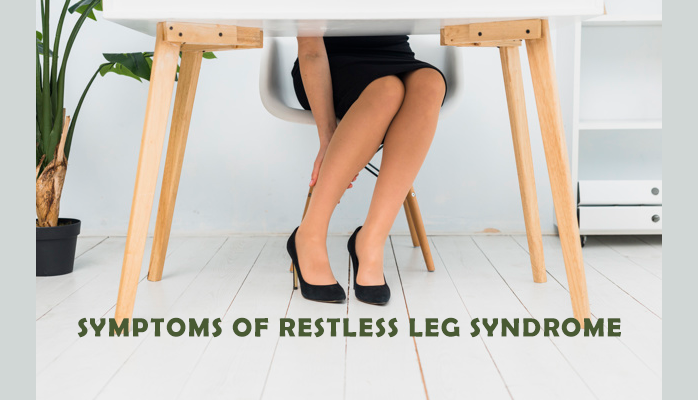Restless leg syndrome (RLS) is a disorder of the nervous system that can cause uncomfortable sensations in your legs and other extremities during the night. These feelings can be disruptive enough to interfere with sleep, leading to sleep deprivation and further exacerbating symptoms.
One primary risk associated with RLS is the cycle of waking up to alleviate discomfort, which can result in ongoing sleep deprivation. Additionally, there is a risk that mild or intermittent RLS may go unnoticed or be misdiagnosed, potentially leading to chronic sleep deprivation.
RLS Symptoms
Some of the symptoms include feeling the following on your legs at night:
- Aching, throbbing, or burning
- Cramping (especially in calves)
- Jerking
- Buzzing or vibrating feelings
- Itchy feeling
- Feeling of pins and needles
- Creepy crawly feeling
- Irresistible urge to move your leg to relieve the discomfort
Those with mild symptoms may go undetected for a long period of time, but those with moderate to severe symptoms may have more readily identifiable symptoms, and thus, can be diagnosed at an earlier time.
Frequency of RLS Symptoms
The discomfort of RLS occurs primarily in the legs, and sometimes, in other extremities. This discomfort can range from mild to intolerable, and be intermittent or chronic. When this discomfort disrupts your sleep, it is classified as a sleep disorder.
Causes of RLS Symptoms
The causes of restless leg syndrome are not known for sure. Science has shed some light on strong correlations between RLS and common triggers, including:
- Genes
- Medical conditions, such as anemia, Parkinson’s, and diabetes
- Medications, such as anti nausea drugs or antipsychotic drugs
- Pregnancy, especially in the last trimester
- Sleep deprivation
- Female sex
- Older age
In some cases, like RLS onset during pregnancy or after sleep deprivation, RLS may go away naturally. In other cases, RLS may be a chronic problem without treatment.
Treatments for Restless Leg Syndrome
There is no direct treatment for RLS such as, but there are a number of management tips. Lifestyle modifications include:
- Beginning regular exercise
- Developing good sleeping patterns/habits
- Reducing the use of stimulants
- Reducing the consumption of alcohol and tobacco
Non-lifestyle treatment methods include:
- Leg massages
- Hot baths and/or ice packs
- A vibrating pad
In some cases drugs may be used, but the effects may relieve or worsen your RLS and the effectiveness may lessen over time.
If you live in Alaska and are concerned that you may be struggling with RLS, please click the blue button below to consult with us to learn more information about what you are dealing with.


